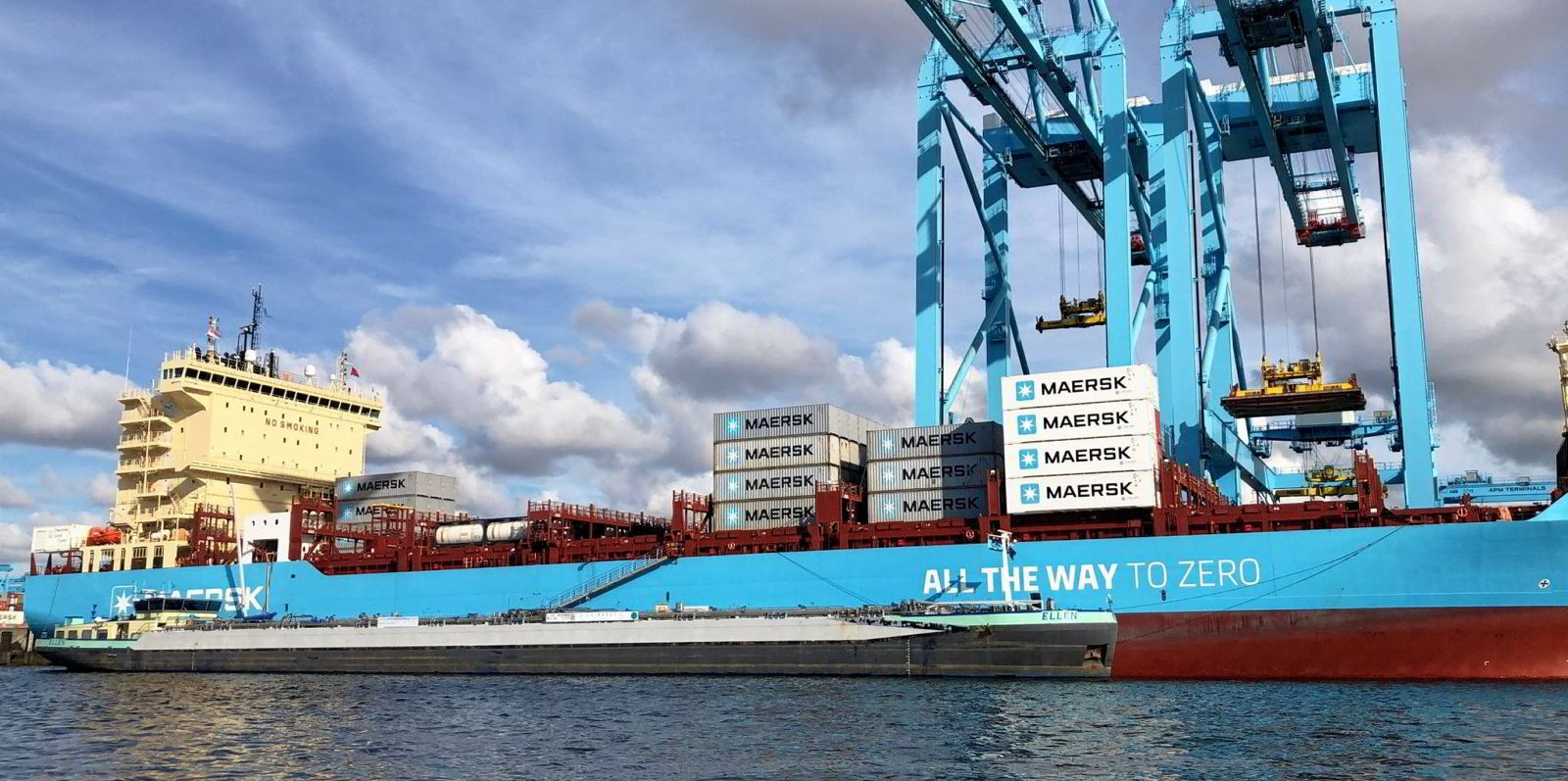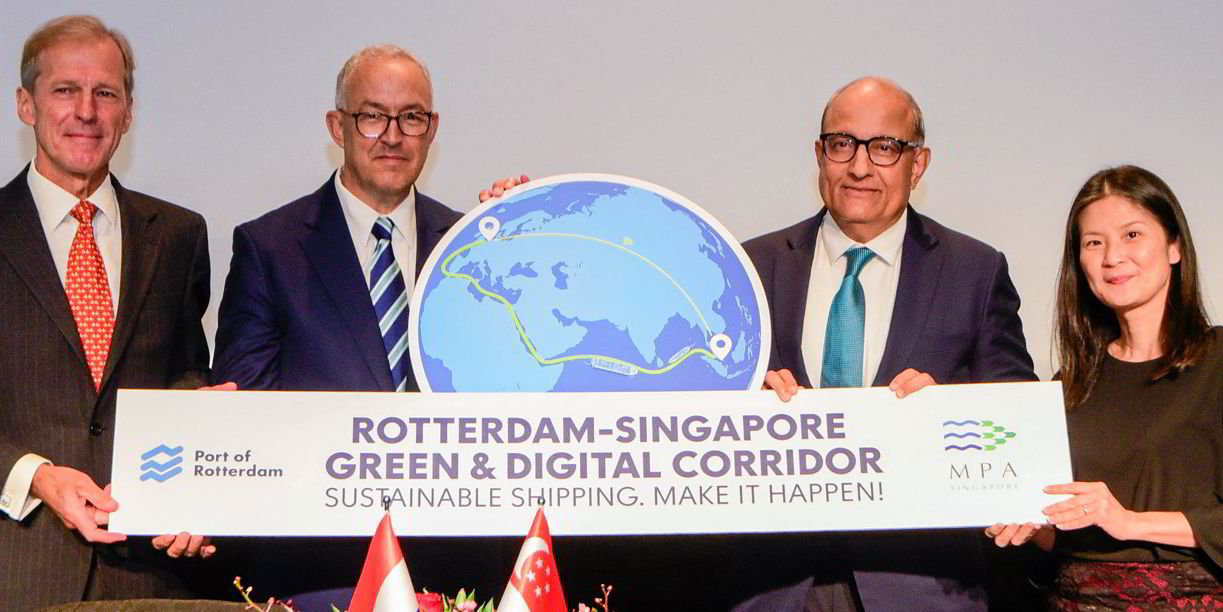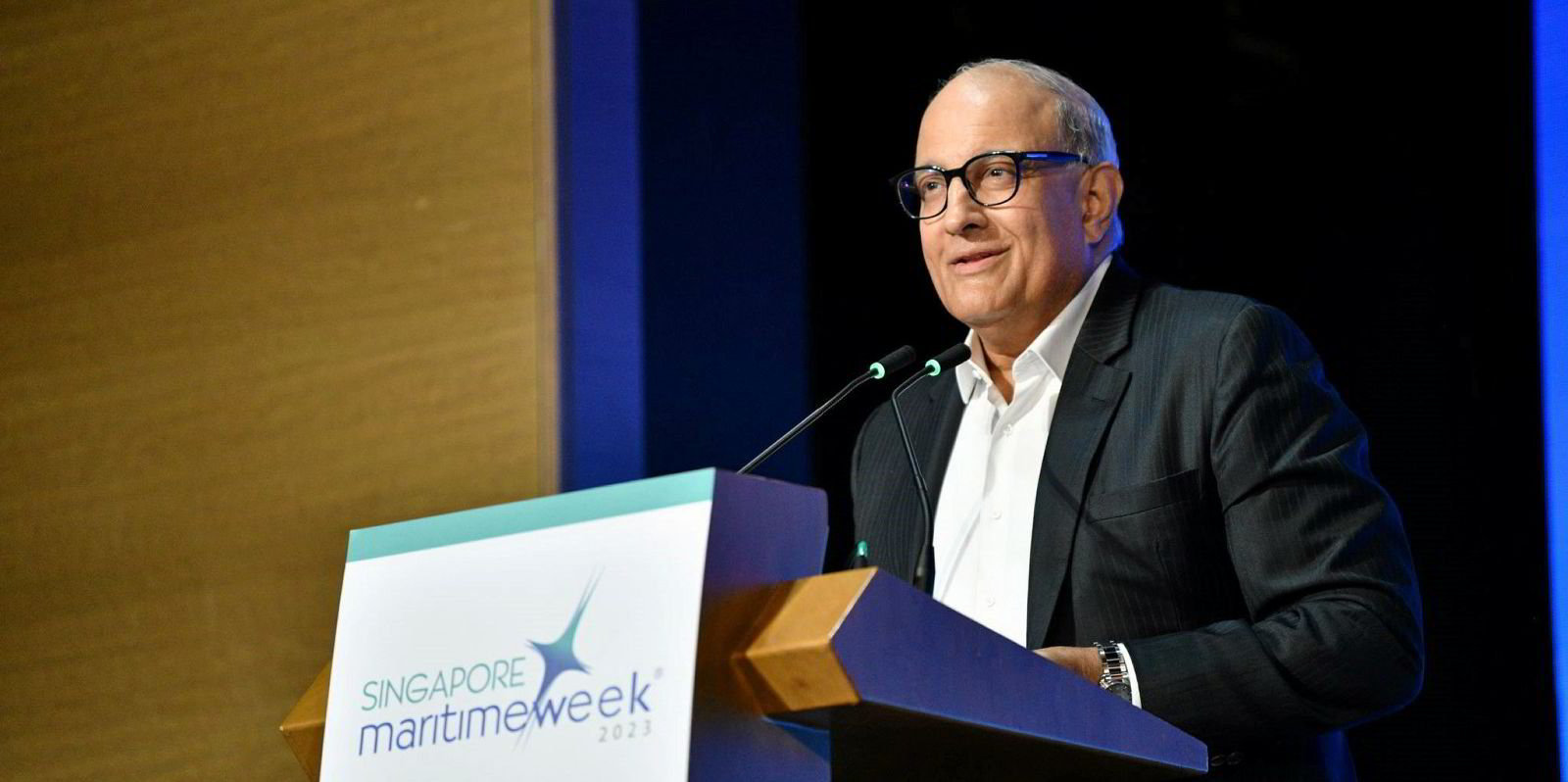Singapore and the Port of Rotterdam aim to reduce greenhouse gas (GHG) emissions on their proposed green shipping corridor by an initial 20% to 30% by 2030, according to the latest update on the project.
The reductions target was agreed at the third green corridor workshop held this week in Rotterdam, the Maritime and Port Authority of Singapore (MPA) said.
Set up in August 2022, the green and digital shipping corridor brings together partners across the supply chain to realise zero and near-zero emissions shipping on the Rotterdam-Singapore route, with the ultimate aim to reach net-zero emissions in 2050.
“Over the past year, the corridor attracted strong support from global value-chain partners, including shipping lines, port authorities and operators, fuel suppliers, fuel coalitions and associations, banks, leading institutes of higher learning and knowledge partners,” the MPA said.
The project is based on the development and uptake of zero and near-zero emission fuels in large container vessels of at least 8,000-teu deployed on the 15,000 km route, supported by a combination of operational and digital efficiencies.
“A modelling study led by the Mærsk Mc-Kinney Moller Center for Zero-Carbon Shipping, one of the corridor partners for the project, and supported by the ports, explored multiple alternative fuels across a variety of zero and near-zero emission pathways, including synthetic and bio-variants of methanol, ammonia and LNG,” the MPA said.
“Beyond the study, hydrogen is one other alternative fuel pathway to be looked at. Efforts are underway to aggregate demand and supply to reduce the cost gap towards adoption of sustainable fuels.”
Working groups have been established to investigate the deployment of all of these fuels on the trade lane, spanning across demand and supply of fuel, standards, safety procedures, financing and regulations.
The corridor partners gathered in Rotterdam this week are said to have identified action steps for the various fuel pathways.
“Low carbon fuels will likely be more expensive than existing fuels and a separate working group has been formed with the support of the Global Maritime Forum, the Centre for Maritime Studies of the National University of Singapore, University of Oxford, and Citi, to address gaps in regulation and financing,” the MPA said.
It added that the study will include modelling price-gap differences to “incentivise the uptake of alternative fuels”.
In addition, Singapore and Rotterdam say they have jointly assessed the readiness of both ports and steps ahead such as adopting similar bunkering standards and safety frameworks to accelerate the adoption of zero and near-zero emission fuels on this major trade route.
“This was put into action in the third quarter of 2023 with the conduct of ship-to-ship green methanol bunkering on the world’s first methanol-fuelled container ship at both Port of Singapore and Rotterdam,” the MPA said.
The partners said they believe that the corridor’s approach, supported by the strong industry coalition will provide “greater certainty in demand and help scale-up production of zero and near-zero emission fuels. This will help to close the cost gap and encourage even wider adoption of such fuels”.





